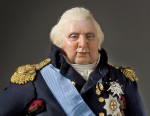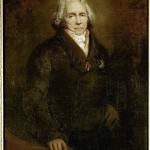The restored monarchy had offended and alarmed so many Frenchmen in so many ways that they looked upon Napoleon as a deliverer and an avenger. Courtiers and ministers protested loyalty to the King – but took steps to make themselves safe with the Emperor. Louis XVIII left hurriedly for Ghent. When Napoleon drove up to the Tuileries at midnight on 20 March, he was greeted with delirious enthusiasm. Some of his old marshals, such as Macdonald and Marmont, remained aloof; but others, such as Devout and Soult, followed the example of Ney.
To please Lafayette and the old republicans he summoned the Chambers and issued an Acte Additionnel aux Constitutions de l’Empire. This was an attempt to outdo Louis XVIII, promising a more democratic franchise and more unrestricted liberty for the individual. In the preamble Napoleon gave an interpretation of his actions during the past ten years. His purpose, he said, had always been to establish a Federation of Europe founded on liberal principles. Unfortunately the opposition of monarchs and aristocrats – especially the English – had involved him in wars and had frustrated his plans. Those plans could not be resumed without yet another war, which it was against his principles to provoke; but within the limits of the Empire his name should ever stand for the ideas of 1789, peace and free institutions. To the Allied Sovereigns he sent a message declaring that he had heard the voice of posterity. He now desired peace with all men; and though he would never have signed the Treaty of Paris, yet he would faithfully observe it. The peacefulness of a constitutional monarch would accord with his declining years.
The Powers at Vienna were not impressed by his fair words. All Talleyrand’s skill in
dissolving the Coalition was wasted. When Napoleon sent the Czar the secret treaty between France, Austria and Britain, which he had found in Louis XVIII’s desk at the Tuileries, Alexander merely showed it to the embarrassed Metternich and then put it on the fire, saying, “Let us forget all that: the question now is to over throw our common enemy.” They declared that Napoleon had placed himself outside the pale of civil and social relations, and renewed the Treaty of Chaumont. Wellington, the chief British plenipotentiary at the Congress, was appointed to the supreme command of the Allied forces, and at once left Vienna to take up his duties.
Meanwhile Napoleon was reorganizing the French army. Most of the émigré officers had fled, but there was no lack of war-hardened veterans to replace them. They and the thousands of prisoners of war returned from Russia enabled him to create in a month the best army he had had since 1812 – perhaps since 1807. However, Napoleon was not the man he had been, except in fits and starts.
By 20 March, Napoleon was in Paris with an army of 140,000 regular troops and a volunteer reserve of about 200,000. The Allies had been caught unawares; Napoleon was not prepared to fight on French soil so he took battle to his enemies.


